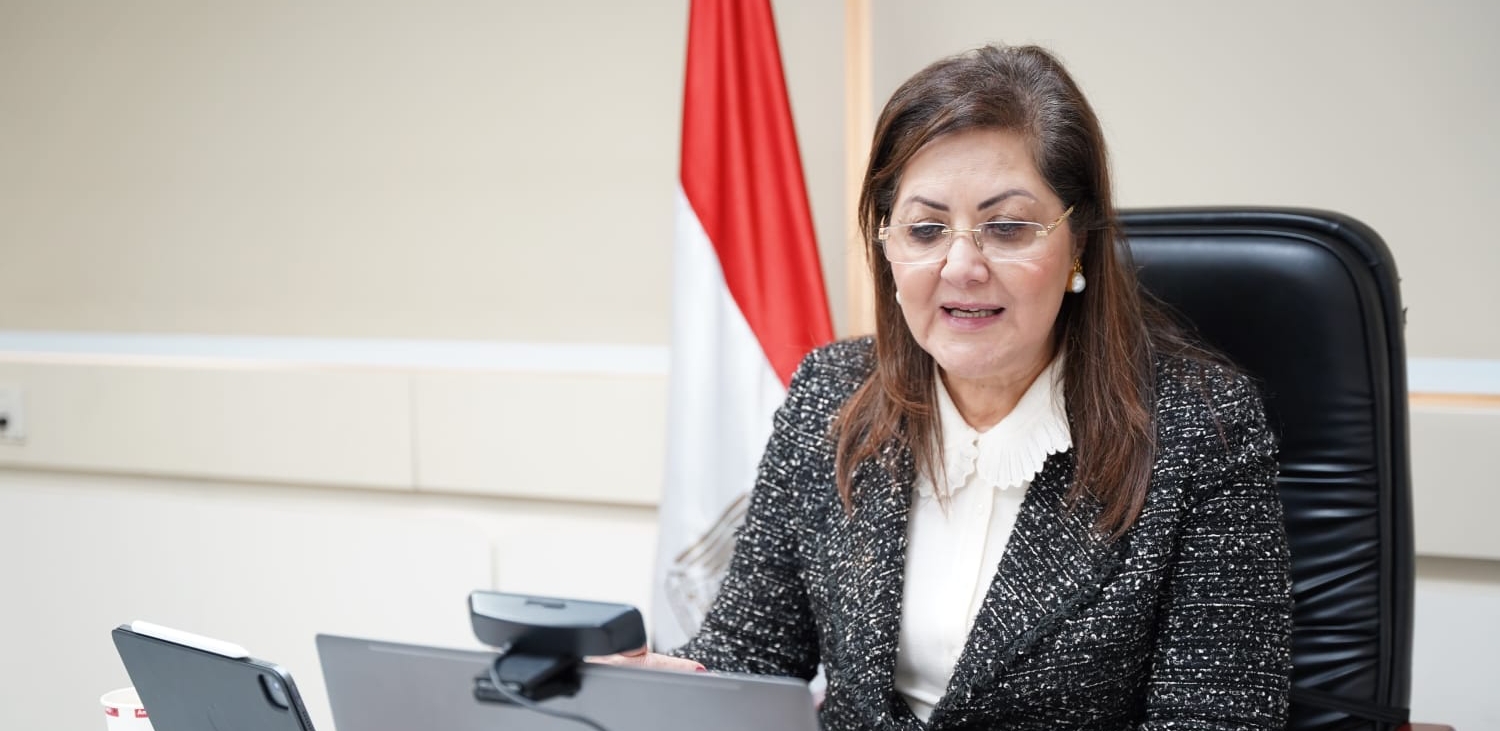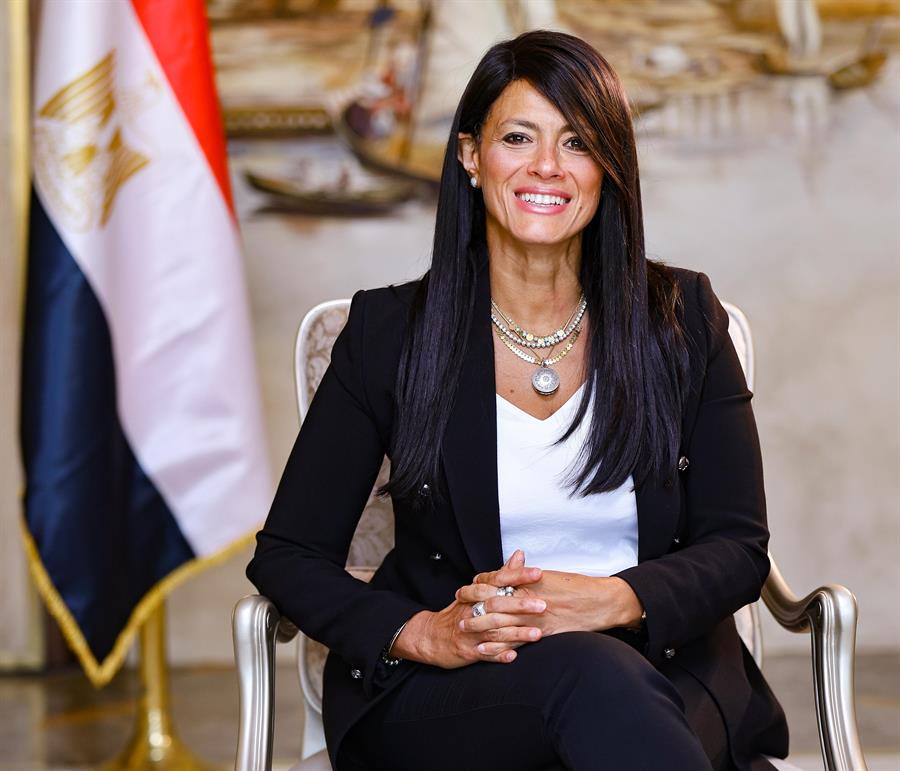Egypt's Minister of Planning and Economic Development participates in the high-level virtual symposium on the launch of the Network of Young Economists of the Economic Commission for Africa

11 December 2021
Dr. Hala El-Said, Minister of Planning and Economic Development, participated in a high-level virtual symposium on the launch of the Network of Young Economists of the Economic Commission for Africa, under the title "Investing in Africa's Future".
The symposium was held via video conference, and was organized by the United Nations Economic Commission for Africa, titled “Global Uncertainty and Macroeconomic Stability in Africa: What is the Role of Macroeconomic Models”.
At the beginning of her speech, El-Said said that over the past few decades, macroeconomic instability has increased at the global level, due to various global crises and the weakness of some stabilizing factors.
El-Said stressed that macroeconomic stability is the cornerstone of any successful effort to increase private sector development and economic growth, as well as accelerate the achievement of sustainable development goals, continuing that maintaining macroeconomic stability is vital to achieving sustainable and comprehensive development.
El-Said explained that the world is currently facing the effects of the Corona pandemic, which has led to increasing concerns about economic activity, labor markets, financial markets, and global supply chains, adding that the new variables have led to increased uncertainty about economic recovery.
El-Said indicated that Africa's GDP is expected to grow by 3.4% in 2021 after contracting by 2.1% in 2020 as a result of the pandemic.
She added that this recovery will signal the end of the worst recession in more than half a century and will be supported by an expected resumption of tourism, and a recovery in commodity prices.
However, El-Said added that macroeconomic indicators in Africa have weakened due to the pandemic, noting the need to put in place policies to accelerate Africa's transition to a more resilient, inclusive, and sustainable recovery after the pandemic.
El-Said pointed to the need for policymakers to have forecasting tools that activate the forecast of the likely course of important economic indicators such as inflation, output, or unemployment, in addition to their need for tools that help determine the economic effects of changes in monetary policy.
El-Said noted the importance of the ECA Network of Young Economists seeking to create a peer-to-peer platform for learning and research to empower and engage a new generation of young macroeconomic makers with the skills to support excellence in macroeconomic modeling.
El-Said talked about Egypt's efforts to build a resilient economy in light of the challenges facing the world, noting Egypt's launch of its Vision 2030, in line with the Global Sustainable Development Agenda 2030 and Africa's Agenda 2063.
El-Said also talked about the first phase of the national program for economic and social reform, which was launched by the government in 2016 to implement a series of reforms that would lead to stability, integration, and sustainable growth.
El-Said explained that Egypt faced the Corona crisis thanks to the reforms that have been implemented since 2016, explaining that it is facing an unprecedented state of local and global uncertainty.
The Egyptian government's policies ensured targeted spending on developing the necessary health capacities, expanding social protection networks, while maintaining financial sustainability and rebuilding international reserves.
El-Said added that as an immediate response to the epidemic, the Egyptian government intensified its efforts and proactively launched a comprehensive financial stimulus package worth 100 billion Egyptian pounds, equivalent to 2% of GDP, to confront the crisis.
El-Said added that as a result of these efforts, Egypt became one of the few countries in the world capable of achieving 3.3% growth in 2021, despite the economic repercussions of the epidemic, explaining that the Egyptian economy rebounded strongly, achieving a growth rate of 9.8% in the first quarter of the fiscal year. 2021/202.
El-Said affirmed the Egyptian government's commitment to follow up the second phase of the reform program, by launching the structural reform program, which was launched in 2021.
The reform program focuses on raising the productive capacity and competitiveness of the economy and achieving comprehensive, balanced, and sustainable growth by expanding the role of the private sector and upgrading human capital.
El-Said added that the Egyptian government also established The Sovereign Fund of Egypt (TSFE) in 2018 to enter into more effective and value-added partnerships with the private sector and cooperate with local and international partners to create job opportunities for young people in Egypt and preserve the rights of future generations.
El-Said pointed to Egypt's launch of green bonds to become the first country in the Middle East and North Africa to issue "green bonds" worth $750 million, announcing Egypt's hosting of the 2022 climate conference, which represents one of the largest and most important international events that the world witnesses every year.
El-Said added that in line with the updated sustainable development strategy and various settlement efforts in Egypt, there has recently been a clear focus on using evidence-based research to guide policy-making.
El-Said explained that the basic requirement for evidence-based policies is to provide accurate, timely, and easily accessible data, stressing that many efforts are being made to improve data accessibility and enhance data quality.
El-Said concluded by explaining that African economies are becoming increasingly competitive, and thanks to their innovative and productive capabilities, they have been able and will continue to attract significant foreign investment and financing, in addition to continuing to diversify trade patterns, leading to a positive path towards 2030 and new economic resilience.









